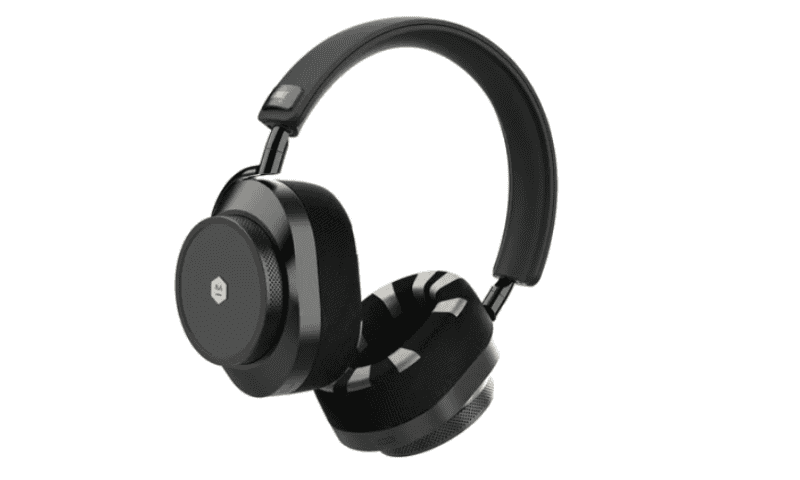Listening to music while working may one day become a two-way street. Neurable is putting forward a pair of headphones equipped with sensors to measure mental activity—in what it describes as the first brain-computer interface of its kind aimed at the general consumer.
Through a collaboration with the audio brand Master & Dynamic, Neurable has built electroencephalography electrodes into the headphones’ ear pads, with no implants required. Commonly known as an EEG, the 12-channel device aims to capture brainwave signals and offer its users data readouts on their focus levels.
Aimed at the wellness segment, the companies claim the approach could help manage burnout, by sending an alert to a connected smartphone app when a person’s focus begins to wander and then prompting them to take a short break from work.
“The brain serves as the core of our health and well-being, yet we have only scratched the surface of what is possible by understanding and harnessing its power,” Neurable co-founder and CEO Ramses Alcaide said in a statement. “These headphones mark the beginning of BCI-enabled technology for all, with the development of future use cases already underway.”
The MW75 Neuro headphones are built on Master & Dynamics’ original flagship noise-canceling headset and are set to retail for about $700. Neurable said it plans to launch the pair in Europe and the U.K. next spring.
Earlier this year, Neurable, a University of Michigan spinout, raised $13 million in venture capital financing for its consumer-grade BCI efforts, in a funding round joined by Ultratech Capital Partners, TRAC, Pace Ventures and Metaplanet.
Medical-grade brain-computer interfaces are also starting to link up more with consumer electronics to demonstrate the technology’s potential to reconnect people with debilitating diseases with the devices of day-to-day life.
Earlier this year, Synchron showed it could pair up its Stentrode implant with wearables like the Apple Vision Pro, allowing a person with ALS to use his brain instead of hand gestures to operate the headset. In addition, earlier this month, Synchron linked its BCI with Amazon’s Alexa assistant to control smart home devices.

